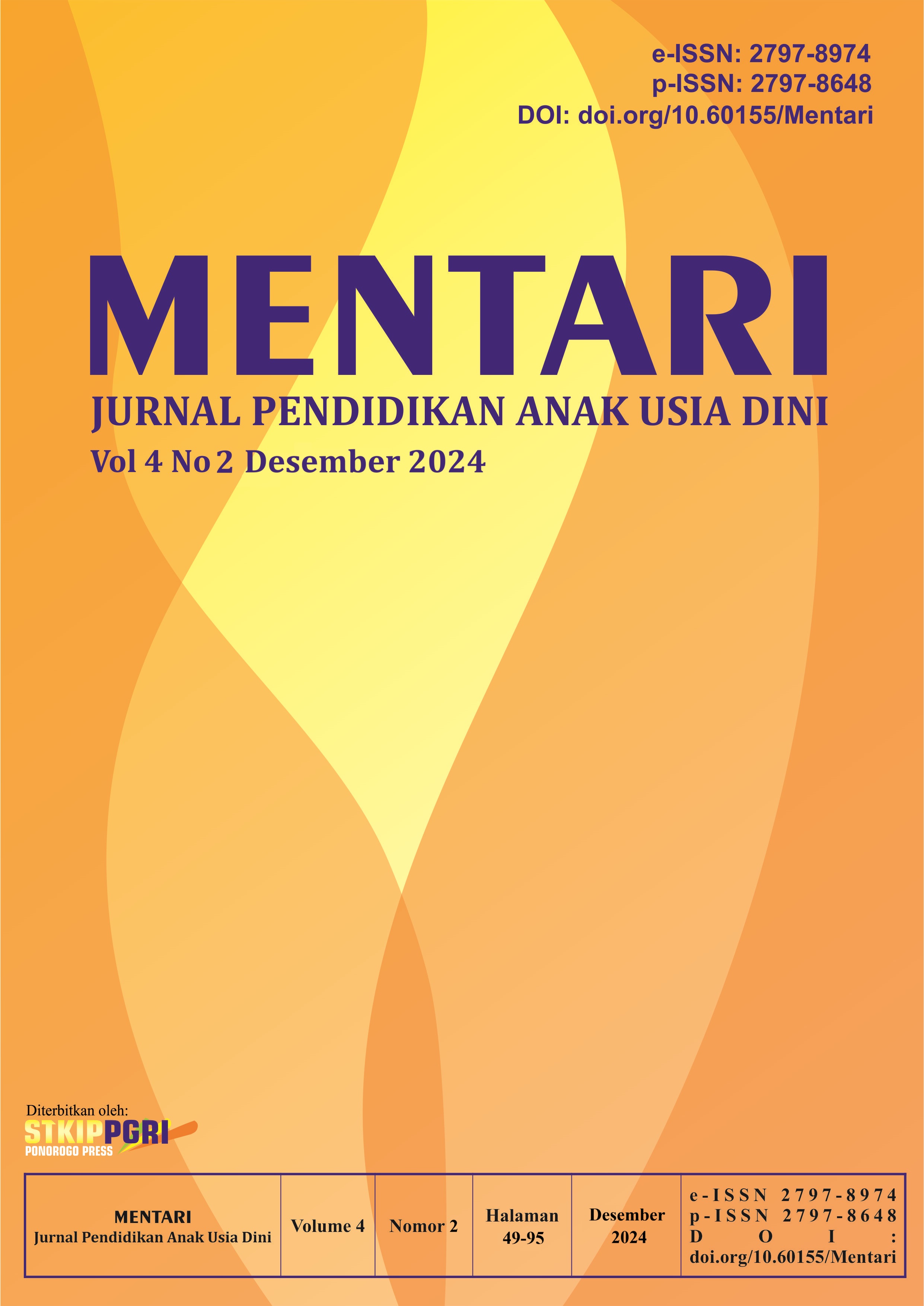Analisis Permainan Edukatif dalam Mendukung Perkembangan Kognitif Anak Usia Dini
DOI:
https://doi.org/10.60155/mentari.v4i2.481Keywords:
Cognitive Development, Early Childhood, Educative Game, Preoperational StageAbstract
Early childhood is an important period to optimize children's potential, where the role of parents and teachers is crucial. Early childhood education creates an environment that supports exploration and learning. Early childhood is an important period to optimize children's potential, where the role of parents and teachers is crucial. Early childhood education creates an environment that supports exploration and learning. The cognitive development of early childhood, especially in the preoperational stage (ages 2-7 years), can be optimized through educational games, both modern and traditional, such as puzzles, role-playing, and congklak. Research shows that these games are effective in developing symbolic thinking skills, problem solving, and practicing numeracy skills, with some studies noting an increase in cognitive aspects of up to 94.73%.









